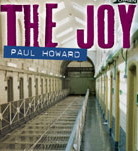Points for Law
 The Central Applications Office (logo left) processes all applications to first year undergraduate courses in the country’s various third level institutions. Those institutions inform the CAO of the number of places in a given course, and the CAO’s computer will allot places on the course on the basis of results in the Leaving Certificate, a state examination at the end of secondary school. The grades of the last-admitted candidate can be regarded as the cut-off for qualification for entry to that course. Those grades are assigned points, and the entry requirement for any given third-level course in any given year can be represented in terms of points. This year, the first round of offers of places in third level institutions was made this morning, and the cut-off points levels for their
The Central Applications Office (logo left) processes all applications to first year undergraduate courses in the country’s various third level institutions. Those institutions inform the CAO of the number of places in a given course, and the CAO’s computer will allot places on the course on the basis of results in the Leaving Certificate, a state examination at the end of secondary school. The grades of the last-admitted candidate can be regarded as the cut-off for qualification for entry to that course. Those grades are assigned points, and the entry requirement for any given third-level course in any given year can be represented in terms of points. This year, the first round of offers of places in third level institutions was made this morning, and the cut-off points levels for their 44 50 law offerings are below.
Points Required for Entry to 2012 Level 8 Courses
Athlone IT
AL057 Business and Law 270
AL058 Accounting and Law no points stated
Carlow IT
CW708 Law 305
CW938 Business with Law 315
University College Cork
CK301 Law 475
CK302 Law and French 515
CK304 Law and Irish 530*
CK305 Law (Clinical) 535
CK306 Law (International) 550*
Dublin Business School
DB514 Business and Law 235
DB568 Law 275
Dublin City University
DC230 Economics Politics and Law 390
DC232 Law and Society (BCL) 410
Dublin Institute of Technology
DT321 Business and Law 400
DT532 Law 350
Griffith College Dublin and Griffith College Cork
GC203 Law (Cork) 315
GC403 Law (Dublin) 305
GC404 Business and Law (Dublin) 250
Trinity College Dublin
TR004 Law 525*
TR017 Law and Business 565
TR018 Law and French 565
TR019 Law and German 525
TR020 Law and Political Science 575
University College Dublin
DN009 Law (BCL) 495
DN021 Business and Law 495
DN028 BCL Maîtrise 525
DN029 Law with French Law (BCL) 560
DN060 Law with History 500
DN065 Law with Politics 510
DN066 Law with Philosophy 495
DN067 Law with Economics 515
NUI Galway
GY101 Arts 300 (depending on subject choice and progression rules, this can lead to a BA in Legal Science)
GY250 Corporate Law 350
GY251 Civil Law 405
Limerick IT
LC231 Law and Taxation 305
University of Limerick
LM020 Law and Accounting 415
LM029 Law Plus 405
NUI Maynooth
MH115 Law (BCL) and Arts 460
MH 119 Law 475
MH406 Law and Business 460
Waterford Institute of Technology
WD140 Law 295
Points Required for Entry to 2012 Level 7/6 Law Courses
Dublin Business School
DB580 Legal Studies 105
DB581 Legal and Business Studies 170
DB582 Legal Studies AQA
DB583 Legal and Business Studies 100
IT Carlow
CW706 Legal Studies 270
CW926 Business with Law 250
Letterkenny IT
LY207 Law 140
Waterford IT
WD013 Legal Studies 225
This list follows the order provided by the CAO.…



 Earlier this evening, I did an interview on
Earlier this evening, I did an interview on